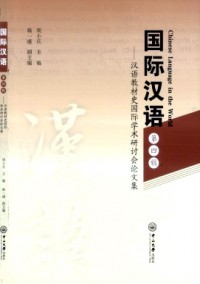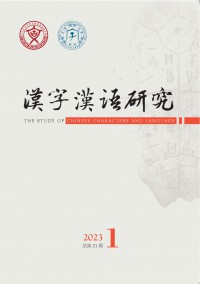汉语习语英译
前言:本站为你精心整理了汉语习语英译范文,希望能为你的创作提供参考价值,我们的客服老师可以帮助你提供个性化的参考范文,欢迎咨询。

[Abstract]DomesticationandforeignizationarethetermsbroughtupbyanAmericanscholarL.Venutitodescribethetwodifferenttranslationstrategies.Theformerreferstotranslationinwhichatransparent,fluentstyleisadoptedinordertominimizethestrangenessoftheforeigntextfortargetlanguagereaders,whilethelatterdesignatesthetypeoftranslationinwhichatargettextdeliberatelybreakstargetconventionsbyretainingsomethingoftheforeignnessofthesourcetext.Translation,generallyspeaking,isnotonlyatransitionbetweendifferentlanguages,butalsotransferringinformationofcultureinthesourcelanguagetothatinthetargetlanguage.Andthenatureoftranslationisculturalcommunication.Since1980s,manyscholarsputforwardtheirownopinionsupondomesticationandforeignizationunderthelightofculturaltranslation.Intheiropinion,thefundamentaltaskoftranslationistotransfertheoriginalcontentsandculturescompletelyintothetargetlanguage.Duringtranslation,translatorsshouldconsidernotonlydifferencesbetweenlanguagesbutalsothosebetweencultures.Therefore,translatorsshouldputmoreemphasisonforeignization.TakeChineseidiomsforexample.Sincetheexchangesamongdifferentcountriesandregionsbecomemoreandmorefrequent,translatorsshouldputmoreemphasisonforeignizationintranslatingChineseidiomsintoEnglish.Duringtranslation,translatorsshouldfacsimileasmuchaspossibletheculturalfeaturesandconnotationsofChineseidioms.Inthisway,EnglishpeoplecanknowmoreandbetteraboutChinaandreallycontactwiththesophisticatedChineseculture.Meanwhile,tosomeextent,foreignizationcanhelptospreaduniqueChineseculturalmessageandevenhelptoenhanceculturalcommunicationbetweenChinaandforeigncountries.
[KeyWords]domestication;foreignization;culturaltranslationtheory;Chineseidioms
【摘要】归化与异化是两种不同的翻译策略。译界有许多学者对此发表了许多的观点。归化与异化之争由来已久,从古至今,从西方到中国,归化与异化都是学者译者们争论的热门话题之一。翻译基本上是一种语言转换活动但又不是一项纯粹的语言转换活动,它还牵涉到种种非语言因素,特别是牵涉到种种文化因素。翻译不仅是语言层面更是文化层面上的一种活动,其本质是文化交流。自20世纪80年代后,许多学者针对归化与异化提出了应该从文化角度来审视二者的观点。孙致礼在《翻译的异化与归化》中提到:“翻译的根本任务是准确而完整地传达原作的‘思想’和‘风味’。在翻译中,译者不仅要考虑语言的差异,还要密切注视文化的差异,力求最大限度地保存原文所蕴涵的异域文化特色。如果不是万不得已,特别不宜归化,而要尽可能真实地传达出来。”“归化主要表现在‘纯语言层面’,在‘文化层面’上则应力求最大限度的异化。”以汉语习语为例,在当今跨文化交流不断发展的趋势下,译者在翻译中应多从文化的角度考虑,适度加以应用“异化”策略及其方法,尽可能重现汉语习语的文化特征及内涵,让西方人更多更好地了解中国,接触中华民族博大精深的文化,同时也有利于传播中国独有的文化气息,进而有利于实现中国与世界各国进一步交流。
[关键词]归化;异化;文化翻译观;汉语习语
1.Onculturaltranslationtheory
Culturaltranslationisdiscussedinthebroadcontextofculture.Itincludesananalysisofthesurfaceanddeepstructuresofcultureandlanguage,andtheexaminationoftheinternalcontextbetweencultureandtranslationaswellastheobjectivelawspertainingtotheirinteraction.Inlate1980s,manyscholarsbegantogivetheirownopinionsontranslationfromtheperspectiveofculture.UmbertoEcoconsideredthattranslationequalstoculture,thatistosay,thetranslationactivityisakindofculturaltransportation.“LambertandRobynsheldthattranslationshouldbetreatedasnotonlyanactivitybetweentwolanguagesbutalsoacommunicativeactivitybetweentwocultures.Nidapointedout:foratrulysuccessfultranslation,biculturalabilityismuchmoreimportantthanbilingualability”[1]p70.Somescholarssuggestedthatculturebutnottextshouldberegardedasthetranslationunitandtranslatorsshouldpaymoreattentiontocultureduringtranslation.Tosomeextent,thoseviewsbecamesymbolsofformationofculturaltranslationtheory.
Differentcultureshavedifferentfeatures.Cultureindicatesanation,regionorarace’sfeature.Andthecommunicationofdifferentculturesneedstranslation.Translationistheproductionandintermediumofculturalcommunication.“Translationreflectsthefeaturesofbothcultureswhenonelanguageandcultureistranslatedintoanother.Andtheaimoftranslationistotransferthesourcecultureintothetargetculture”[2]p24.“WangZuoliangpointedout:Thedifferencebetweentwoculturesisthemostdifficultthingintranslation,sotranslatorsshouldhaveagoodknowledgeofboththeforeigncultureandthenativeculture.Themoretranslatorsunderstandtheculturalinformation,themorepossiblytheycanmasterthelanguageandreproducetheoriginalculture.HanZimanviewedthatthefeaturesofculturehaveaneffectonthewholetranslationactivitiesandtheviseversaisalsotrue”[3]p116.Therefore,thetransferenceofculturalinformationshouldplayakeyroleintranslation.
Inthebroadcontextofculture,translationmeansnotonlyonelanguagebeingtransferredintoanotherbutalsoacommunicationbetweentwocultures.Andthepurposeoftranslationistopromoteculturalcommunication.Translationisakindofculturalactivitythattranslatorsreproducetheoriginalcultureinthetargettext.Culturalinformationbutnotlanguageistheobjectoftranslation.“Duringtranslation,translatorsshouldtranslatethe‘form’and‘essence’oftheoriginallanguageintothetargetlanguagedirectlyandexactly.i.e.,translationshouldreservetheculturaldifferenceandreproducetheoriginal‘foreignness’asmuchaspossible”[4]p37.Here,“‘foreignness’meansthattranslationshouldkeepasmuchaspossibletheculturalfeaturesandinformationofthesourcetext”[5]p136.Allinall,inculturaltranslation,translatorsshouldtakecultureintoconsiderationandreconstructthesourcecultureasmuchaspossibleintothetargetlanguageduringtranslation.
2.Domesticationandforeignizationunderthelightofculturaltranslation
2.1Theoriginanddefinitionofdomesticationandforeignization
Thepairofterms,domesticationandforeignization,wasmentionedinTheTranslatorInvisibilitywrittenbyAmericanfamoustranslatorL.Venutiin1995,whichwereusedtodescribetwokindsoftranslationstrategies.TheirtakingoutwereonthebasisofGermanyphilosopherSchleierMarcher,whoviewedthatthereweretwokindsoftranslation,onewas“thetranslatorleavestheauthorinpeaceasmuchaspossible,andmovesthereadertowardhim.”theotherwas”thetranslatorleavesthereaderinpeaceasmuchaspossible,andmovestheauthortowardhim.”[6]p21.AccordingtoMarcher’sopinion,theformersentencereferstomeanthereader-orientedtranslationwhilethelattertheauthor-orientedone.Thereader-orientedtranslationreferstothetranslationthattranslatorspaymoreattentiontothetargetlanguagereaders’conventionsandunderstandingswhiletheauthor-orientedonemeanstothetranslationthattranslatorstakethesourcelanguageauthor’sideasandstyleintoaccount.However,heneverusedspecialtermstosummarizethem.ItwasSchuttleworthandCowiewhodefinedthem.Theygave“domestication”adefinitionas“atermusedbyVenutitodescribethetranslationstrategyinwhichatransparent,fluentstyleisadoptedinordertominimizethestrangenessoftheforeigntextfortargetlanguagereaders.”[7]p21Venuticonsideredthat“domestication”containedderogatorymeaning,because“itisidentifiedwithapolitycommonindominantcultureswhichare‘aggressivelymonolingual,unreceptivetotheforeign’,andwhichhedescribesasbeing‘accustomedtofluenttranslationsthatinvisiblyinscribeforeigntextwith[targetlanguage]valuesandprovidereaderswithnarcissisticexperienceofrecognizingtheirowncultureinaculturalother”[8]p21.Inotherwords,accordingtoVenuti’sopinion,“domestication”usedintranslationindicatesthemeaningofthe“dominantculture”recombiningthelanguageandculturalfeaturesofthesourcetextwiththepurposeofdominatingthe“weakculture”.
For“foreignization”,SchuttleworthandCowiedefineditas“atermusedbyVenutitodesignatethetypeoftranslationinwhichatargettextisproducedwhichdeliberatelybreakstargetconventionsberetainingsomethingoftheforeignnessoftheoriginal.”Venutiregardeditasachallengingstrategyto“domestication”anditseffectisto“registerthelinguisticandculturaldifferenceoftheforeigntext,sendingthereaderabroad.”[9]p21Intranslation,translatorsshouldreservethelanguageandculturefeaturesofthesourcetext;therefore,readersofthetargettextcanfeelsome“strangeness”ofothercultures.
ThedefinitionofdomesticationandforeignizafionhaschangedwhentheyareintroducedintoChina.“Andthescopeofreferenceisenlarged.ItreferstonotonlythetranslationfromforeignlanguagestoEnglishbutalsothetranslationfromonelanguagetoanother,especiallyfromChinesetootherlanguages”[10]p22.What’smore,theelementsofculturalinequalityneverdrawpeople’sgreatattentionandevenareforgotten.
Fromtheexplorationanddiscussionmentionedabove,nowwecansumupdomesticationandforeignizationinthisway:theyaretwodifferenttranslationstrategiesusedbytranslatorsaccordingtodifferentaspectssuchasthedifferencebetweentwolanguagesandcultures,translationpurpose,typeoftext,intentionoftheauthorandreadersofthetargetlanguageetc.“Domestication”holdsthattranslationshouldbeinaccordancewiththetargetlanguageandcultureandgetridofthebarriersasmuchaspossiblesoastomeetthetargetlanguagereadersdemands;“foreignization”viewsthattranslationshouldreservetheculturalfeaturesofsourcelanguagesoastoenrichthetargetlanguageandcultureandmeetthetargetlanguagereaders’demandof“strangeness”.“Domesticationandforeignizationisapairofcomplementarytranslationstrategiesthatdon’trejectagainsteachother”[11]p68.
2.2Foreignization-orientedstrategyunderthelightofculturaltranslation
Generallyspeaking,domesticatingtranslationgivesthereadermoreconvenienceandsavesthereadermuchtime.Intheglobalinformationage,convenienceandbriefnessbecomemoreandmoreimportant.Tosomeextentinformationismoneyandtimeismoney.Soitseemsthatweshouldusedomesticationstrategyasmuchaswecanintranslation.However,generallyspeaking,foreignizingtranslationgivesthereadermoreinformationthanthedomesticatingone.Fromtheperspectiveofinformationtheory,onlynewinformationisusefulinformation.Ifthetranslationcanonlyprovide“old”information,itisnotsovaluable.Supposingthesourcetextandthetargettextconveythesameinformation,thetargetreaderstillgetsomethingnewifwhatheorshereadsisaforeignizedtranslation.Meanwhile,withthedevelopmentofhightechnologyandtheimprovedmeansofcommunication,moreandmorepeoplewanttolearnforeigncultureandknowledgeandinassimilatingandlearningforeignlanguageandculture,foreignizationisusefulandessential.InChina,withthepolicyof“reformandopeningstotheworld”,Chinacommunicatesmorefrequentlywithforeigncountries.MoreandmoreforeignerstakegreatinterestinChinesecultureandurgentlywanttoacquireChinesecultureknowledge.Itisforeignizedtranslationthatcanmeetthisneedmuchbetter.Thereasonsareasfollows:
First,thenatureofforeignizationdeterminesthatitsdealingwiththeelementswithobviousculturalfeaturesinthesourcetextshouldinevitablyresultsinbringingsomenewexpressionsandculturalconnotationsinthetargettext,i.e.,bringingsome“foreignness”.Sinceexchangesamongdifferentcountriesbecomemoreandmorefrequently,nowadays,manysortsoflanguagesattainenrichmentstosomeextent.Andforeignizationtranslationplaysanimportantroleintheprocess.Forexample,termsandexpressionslike“Internet,Gene,blueprint,killingtwobirdswithonestone,crocodiletears”enrichedChineseand“qigong,taijiquan,kongfu,typhoon,tofu”etc.enrichedEnglish.Andtranslatorsuseforeignizationtomakemany“foreign”wordsgraduallybeacceptedandextensivelybespreadtothepublic.Insomeway,foreignizationisbeneficialforabsorbingnewelementsofforeignlanguage.Oncetheywereaccepted,expressionsofthetargetlanguagewouldbeenrichedandcommunicationfurtherpromoted.
Inaddition,thegapsamongdifferentcountriesbecomesmallerandsmallerbecauseoffrequentinternationalcommunicationinpolitics,economics,culture,etc.Andglobalizationisalsobecomingthetendencyofsocialdevelopment.Therefore,knowingmoreaboutforeigncountriesbecomesaninevitablepartoflife.Foreignizationisbeneficialnotonlyforintroducingnativeculturetoforeignersbutalsoformakingnativepeoplebefamiliarwithforeigncultures.Inthisway,peoplefromdifferentcountriescancommunicatewitheachotherbetter.Forexample,if“铁饭碗”and“下海”aretranslateddirectlyinto“ironricebowl”and“tojumpintotheseaofbusiness”,thetranslationsreservetheimageaswellasthemeaningofthesourcelanguage.Meanwhile,theuniqueChineseculturehasbeenintroducedtoEnglishreaders.TakeanEnglishidiom“topaintthelily”asanotherexample.Ifitistranslatedinto“多此一举”,thesymbolicmeaningof“lily”inwesterncountrieswouldnotbeknowntotheChinese.Soitisbettertotranslateitinto“为百合花上色”sothatChinesepeoplecanknowthesymbolicmeaningof“lily”andsomemoreaboutwesternculture.
Foreignization,insomeway,hasanactiveeffectoncross-culturalcommunication.However,sometranslatorsusuallytakethereaders’acceptableabilitiesintoaccounttoturnagainstit.Theyconsiderthatreadersmayfeeldifficulttounderstandorevenmisunderstandthesourcetextinaforeignizedtranslation.Infact,readersareactive.Iftheyfindsomeforeignelementsinthetranslationthattheyhavenevercontactedbefore,theywilltrytounderstandandacceptitactivelyintermsofthecontextsornotes.Inthisway,theyalsocanenrichtheirownreadingexperience.Withtheincreasingdevelopmentofculturalcommunication,targetreadersshouldbecomemoreandmoreinterestedinforeignculture,sotosomeextent,domesticationisnotgoodforreaderstoknowmoreculturalinformationofthesourcelanguage.Therefore,translatorsshouldbelieveinthecapabilityofthetargetreaders.Intheend,itisnecessarytopointoutthatputtingmoreemphasisonforeignizationdoesn’tmeantodenyorrejectdomestication,forboththetwostrategiesareapairofcontradictoryunity.However,withthedevelopmentofculturalglobalization,puttingmoreemphasisonforeignizationwillbemorehelpfulfortheculturalcommunicationamongdifferentnations.Venutithoughtthatfluentdomesticatingtranslationmadetranslatorssufferfrom“invisibility”andthedifferencebetweencultureshadalsobeencovered,sothetargetlanguagereaderswilllose“strangeness”,i.e.,“thetargetlanguagereaderscannotfeeltheoriginalstyleandculturaldifferencesindomesticatingtranslation”[12]p25.SunZhilistatedthatdomesticationmainlyembodiesin“thelevelofpurelanguage”andforeignization“inthelevelofculture”.“Sincetheexchangesofculturalinformationamongdifferentcountriesbecomemoreandmorefrequentandpeoplefromallovertheworldcommunicatewitheachotherincreasinglyfrequently,foreignizationshouldbeforegrounded”[13]p42.Inmyopinion,foreignizationshouldbeconsideredmoreinordertoreproduceculturedifferencesinthetargetlanguage.
3.IntranslatingChineseidiomsintoEnglish,foreignizationshouldbetheleadingtranslationstrategy
3.1ForeignizationishelpfultoreproduceChinesecultureintranslatingChineseidioms
ChineseidiomsmainlycomefromChineseancientfables,fairytales,historicaleventsandallusions.TheybearrichandcolorfulChineseuniqueculture.Sincetheopen-doorpolicyhasbeenissuedandculturalcommunicationbetweenChinaandforeigncountriesbecomesmoreandmorefrequent,ChineseculturehasbeengraduallyunderstoodandacceptedbymoreandmoreforeignersandChineseidioms,asonepartofChineseculture,alsohavebeenappreciated.Therefore,thetranslationofChineseidiomsbecomesanimportantpartoftranslationofculture.IntranslatingChineseidiomsintoEnglish,translatorsshouldreserveChinesecultureandreproduceitintargettexts.Andtranslatorsshouldchooseforeignizationasthefirsttranslationstrategy,forforeignizationishelpfultoreproducetheculturalfeaturesandinformationofChineseidiomsintranslation.Thatistosay,intranslatingChineseidiomsintoEnglish,translatorsshouldreserveasmuchaspossibletheculturalfeaturesofChineseidiomsandtranslatetheconnotationsofthemaswell.IftranslatorschoosedomesticationintranslatingChineseidiomsintoEnglish,itwouldbeunlikelyforEnglishreaderstocontactwiththeculturalflavorofChineseidioms.Meanwhile,itwouldnothelptoretainChinesecultureandpromoteculturalcommunication.
Take“巧媳妇难为无米之炊”asanexample.Ifitistranslatedinto“Eventhecleveresthousewifecan’tmakebreadwithoutflour.”ChineseculturalfeatureshavefailedtoberetainedthoughEnglishreaderscanunderstanditeasily.Inthisway,Englishreaderswillnotknowwhat“rice”meanstoChinesepeopleandeventhinkthat“bread”isthemainfoodofbothChineseandthemselves.Ifso,itwillnotgoodforcommunicating.Therefore,theidiomshouldbetranslatedinto“Eventhecleveresthousewifecan’tcookamealwithoutrice.”Inthisway,theculturalconceptof“rice”isreservedandtheculturalfeatureoftheidiomisreproduced.Hereisanotherexample,“穷棒子闹翻身是八仙过海各显神通”.Itcanbetranslatedinto“Thewaywepoorfolkstrytoemancipateourselves,isjustlikethewaytheEightFairiescrossedtheseaeachdisplayinghisowntalent.”[14]p143-144Inthisway,theimageof“theEightFairies”hasbeenreservedandtheconnotationsofit“eachdisplayinghisowntalent”hasbeentranslated.Ofcourse,translatorscanaddanextraexplanationtointroduce“八仙”toEnglishreadersforknowingmoreabouttheidiom,i.e.,“TheEightFairies”istheeightimmortalsofTaoisminChinesefolklore.
Perhaps,somepeoplewilldoubtthatEnglishreadersmayhavedifficultyinunderstandingandevenmisunderstandsomeidiomsiftheyaretranslatedinthisway,fortheculturaldifferencesbetweenChineseandEnglishreallyexist.Inmyopinion,translatorsshouldnotbeworriedaboutit.TheyshouldbelieveinthewisdomandimaginationofEnglishreaders.Furthermore,ittakestimeforonetoachieveunderstanding.Withthedevelopmentofculturalcommunication,misunderstandingwilldisappearandEnglishreaderswillfinallyacceptit.Therefore,translatorsshouldputtheemphasisoncross-culturalcommunicationandtrytoreservetheculturaldifferencesandreproduceasmuchastheuniqueculturalfeaturesofChineseidioms.
3.2SeveralcommonlyusedtechniquesofforeignizationintranslatingChineseidioms
3.2.1Literaltranslation
InthetranslationofChineseidioms,literaltranslationmeansthatintheconditionofnotinvadingtheEnglishculturalconventionsandnotcausingthemisunderstandinganddisassociations,translationshouldcompletelypreservetheimage,figurativeandculturalfeaturesofChineseidiomsinordertopursuetheconformityofboththecontentsandexpressions[15]p70.
Chineseidioms,asweknow,containoneofthedeepestculturesofChinese.Itbearslotsofculturalfeaturesandmessage.Therefore,translatorsshouldhaveadeepknowledgeofChineseidiomsbeforedoingtranslation.WiththecorrectunderstandingofChineseidioms,translatorsshouldtranslatetheidiomswiththeguideofculturalreproduction,thatistosay,translatorsshouldretainculturesoftheidiomsintoEnglish.Duringtranslation,translatorsshouldtranslatenotonlytheimageandmeaningoftheidiomsbutalsotheculturalconnotations.
(1)七嘴八舌-withsevenmouthsandeighttongues
TheChineseidiom“七嘴八舌”maybetranslatedinto“havealoosetongue”.Ifso,Englishreadersmayknowthemeaningeasily.However,theycannotperceiveparticularwayChinesepeopleusetodescribe“noisy”.Ifitistranslatedinto“withsevenmouthsandeighttongues”,Englishreadersmaytakemuchmoreinterestinitandtrytounderstandwhat“sevenmouthsandeighttongues”reallymeans.Inthisway,notonlywilltheyfindoutitsmeaningsoonerorlater,theyalsocanreallylearnmoreaboutChineseculture.
(2)东风压倒西风-theeastwindsubduedthewestwind
“东风压倒西风”,itisusuallytranslatedinto“theeastwindsubduedthewestwind”or“theeastwindprevailsthewestwind”vialiteraltranslation.Here,theimageof“东风”and“西风”hasbeenkeptintranslation.MaybesomepeopledoubtthatEnglishreaderscannotunderstandit,for“thewestwind”inEnglandisdifferentfromthatinChina,andtheymaynotknowwhat“theeastwind”is.Infact,reservingtheimageof“东风,西风”istocarryoutthedifferencebetweenChineseandEnglish.Becauseofthedifference,weneedcommunication,andwiththecommunication,EnglishreaderscanreallyknowwhattherealChinesecultureiscontainedintheidiom.Therefore,translating“东风压倒西风”directlyintoEnglish,fromtheviewoftranslationofculture,isacceptableandnecessary,forthewholemeaning,imageandculturebehindithavebeenreservedandspreadintranslation.
(3)一寸光阴,一寸金-aninchoftimeisaninchofgold
Inaddition,translatorsshouldtranslatenotonlythedenotationsbutalsotheconnotationsofChineseidioms.“一寸光阴,一寸金”shouldbetranslatedinto“aninchoftimeisaninchofgold”.Here,“gold”isoneofthemostpreciousmetalsinChina,so“time”is“gold”.Butinwesterncountries,peoplethink“money”isthemostimportantarticleinlife.ThereisasayinginEnglish:“timeismoney”.Infact,themeaningofthetwosayingsisthesame.However,“aninchoftimeisaninchofgold”isabettertranslation,fortheculturalinformationof“一寸光阴一寸金”canbetransferreddirectlyandfaithfullyintoEnglishandthefeaturesofChineseculturehasbeenreproducedintranslation.
Fromtheexamplesmentionedabove,wecanseethatliteraltranslationisthefirstchoiceoftranslatingChineseidioms,foritcannotonlyreservetheimage,styleandmeaningofChineseidiomsbutalsoreconstructChineseculturalfeaturesandinformationasmuchaspossible.
3.2.2Literaltranslationwithanote
Fromtheviewofculturaltranslation,translationistopromotethecommunicationofculture,soduringtranslatingChineseidiomstranslatorscantranslatetheidiomsdirectlyfirstandthenplusanotetopresentthereadersthestorieslyingbehindtheidiomssoastoenhanceunderstanding.Tosomeextent,itwillmakeEnglishreadersknowmoreaboutChineseculturequicklyandclearlyandeventakemoreinterestsinChinesecultureexistsbehindtheidioms.ThiswillbealsohelpfultopromoteculturalcommunicationbetweenChineseandEnglish.Hereareafewexamples:
(4)“难道这也是个傻丫头,又像颦儿来葬花不成?”因又自笑道“若真也葬花,可谓东施效颦了;不但不为新奇,而是更是讨厌”(DreamoftheRedChamber,Chapter34).
东施效颦-DongShiimitatingXiShi
Here,“东施效颦”shouldbedirectlytranslatedinto“DongShiimitatingXiShi”inordertoletEnglishreaderstrulycontacttheimageoftheidiom.Afterthat,translatorsmaygiveasimpleintroductionabout“东施效颦”.i.e.,DongShiimitatingXiShi,whichisaZhuangzi''''sstoryofthebeautifulXiShi''''suglyneighbor,whoendeavorstoimitatethelittlefrownthatpeopleranfromherinterror.Inthisway,Englishreaderscanknownotonlywho“DongShi”and“XiShi”arebutalsowhattheidiomreallymeans.Inthisway,Chineseculturecanbereproducedclearlyintranslation.
(5)叶公好龙-LordSheh’sloveofdragons
“叶公好龙”,hereitcanbetranslatedinto“LordSheh’sloveofdragons”andaconciseexplanationcanbeaddedafterit:Shehwassofondofdragonsthatheadornedhiswholepalacewithdrawingsandcarvingsofthem,butwhenarealdragonheardofhisinfatuationandpaidhimavisit,hewasfrightenedoutofhiswits.
(6)破镜重圆-abrokenmirrormadewholeagain
“破镜重圆”shouldbetranslatedinto“abrokenmirrormadewholeagain”.However,Englishreadersmayfeelpuzzledaboutthemeaningandcannotunderstandwhyabrokenmirrorcanbe“wholeagain”.Soashortnoteisneeded:IntheNorthernandSouthernDynastieswhentheStateofChen(A.D.557-589)wasfacingitsdemise,XuDeyan,husbandoftheprincess,brokeabronzemirrorintohalves.Eachofthemkeptahalfastokensincasetheywereseparated.Soonafterwards,theydidlosetouchwitheachother,butthetwohalvesofthemirrorenabledthemtobereunited.Inthisway,theidiom’sdeepermeaningcanbeknownexpressively.
3.2.3Literaltranslationwithadditionalremarks
Thiskindofmethodisdifferentfromtheaboveone.Insomeway,theimagesandculturalmeaningsofidiomscanbedirectlytransferredintoEnglishduringtranslation.Additionalremarksusuallyembodiesinphases,oneortwoshortsentences.
(7)目不识丁-onedoesnotrecognize丁,oneofthesimplestcharacterinChinese
Somepeopleconsiderthatthecharacter“丁”shouldbetranslatedinto“ABC”.However,“丁”reflectstheuniqueChinesecharacterculture.Ifitistranslatedinto“ABC”,theexactmeaningof“丁”andtheculturebehinditcannotbereconstructedexplicitlyinEnglish.Ontheotherhand,forthesakeofmakingEnglishreadersunderstandandknowmoreaboutChinesecharacters,abriefillustrationisneededhere.Thecharacter丁isaverysimpleonefortheChinese.Byexplaininginthisway,thereadercangettheconnotationwhileperceivingtheimageofChinesecharacter.
(8)泥菩萨过河-theclayidolfordingtheriver
“泥菩萨过河”itisaspecialChineseidiom.Translatorscanfirstlytranslateitdirectlyinto“theclayidolfordingtheriver”.Suchatranslationpreservesthevividfeatureoftheidiom.Andsecondly,translatorsshouldpulseanadditionalremarktoexplaintheexactmeaningoftheidiom,i.e.,“itismorethanonecandotosavehimselffromdisaster.”Inthisway,thefeaturesofChineseculturecanberetainedintranslationandEnglishreadersalsocanappreciatethewholeidiombetter.
(9)临时抱佛脚-toembraceBuddha’sfeetinone’shourofneed—toseekhelpatthelastmoment
Inwesterncountries,manypeoplebelieveinChrist.Therefore,theycannoteasilyunderstandwhat“临时抱佛脚”reallymeansifitistranslatedinto“toembraceBuddha’sfeetinone’shourofneed”.Perhapstheywouldbeconfusedaboutwhat“Buddha’sfeet”is.Soashortexplanationisnecessarilyaddedafterit,thatis,“toseekhelpatthelastmoment”.Byillustratinginthisway,theycanunderstandtheidiommoreexactly.
3.2.4Literaltranslationpulsingfreetranslation
Sometimes,inordertoexpressmoreexactlyandeffectivelyaboutChineseidioms,translatorsmaychoosefreetranslationasasecondarytooltotransfertheconnotationsofChineseidiomsmorecompletely.Ofcourse,translatorsshoulduseliteraltranslationfirsttopreservetheimageandexpressionsoftheidiomsandthentakefreetranslationintoaccounttoreproducetheculturalconnotationsofChineseidiomsmorecompletely.Examplesareasfollows:
(10)风餐露宿-bravingthewindanddew
Here“风”and“露”canbetranslateddirectlyinto“wind”and“dew”,but“餐”and“宿”herecannotbetranslatedstraightintoEnglishcounterparts“haveameal”and“stayovernight.Therefore,translatorshavetotranslate“餐”and“宿”into“braving”.Suchatranslationnotonlypreservestheoriginalfeaturesbutalsomaketheconnotationsacceptedcompletely.
(11)戴着斗笠亲嘴,差着一帽子-it’slikekissinginstrawhelmets—thelipsarefarapart!
WecanseefromtheexamplethattheformerpartistranslateddirectlyintoEnglish,andthelatterone“差着一帽子”,wecannottranslateitbyliteraltranslation.Chinese“斗笠”isdifferentfromEnglish“hatsorcaps”.Thestrawhelmetshavewideredgesthanhatsandcaps.Andtwopersonswearinghelmetsmaybeseparatedfarawaywhileitwouldnothappenwhentheywearhatsorcaps.Therefore,ifitistranslatedinto“separatedbyahat”,Englishreaderswillfailtounderstandwhy.Inthiscase,wecantranslateitintoEnglishbyfreetranslation,thatis,“thelipsarefarapart!”
3.2.5Rhetoricaltransference
ManyChineseidiomscontainnotonlyrichculturalinformationbutalsobeautifulrhetoric.Duringtranslation,translatorsshouldnotonlypreservetheimages,expressionsandculturalconnotationsbutalsotaketherhetoricmethodsintoconsideration.WhenwereadsomeChineseidioms,weappreciatenotonlythecontentsbutalsotheexcellentrhetoric.Therefore,translatorsshouldhavemuchknowledgeaboutthesefeaturesofChineseidiomsandtrytotransfertherhetoricasmuchaspossible.
(12)嘴上无毛,说话不牢-downylipsmakethoughtlessslips
“毛”and“牢”,arerhymedwordsandthereisajingleinthephrase.Whenitistranslatedinto“Downylipsmakethoughtlessslips”,“lips”and“slips”arealsorhymedwordsandsuchatranslationreservestherhetoriceffectaswellastheform.
ThesefivekindsoftranslationskillsarechosenaccordingtothestrategyofforeignizationtranslationintranslatingChineseidiomsintoEnglish.Fromtheviewofculturaltranslation,theyareusefulandproperskillsfortranslatorstoreproduceChinesecultureintranslationandtheyarehelpfulfortranslatorstospreadChineseculture.Insomeway,theyarebeneficialforpromotingcommunicationbetweenChineseandEnglish.
Conclusion
ThepurposeoftranslatingChineseidiomsintoEnglishistoreproducecultureofChineseidiomstowardsforeigncountries.Fromtheperspectiveofculturaltranslation,translationofChineseidiomsshouldbeforeignizedtranslation.SincetheculturalcommunicationbetweenEnglishandChinesebecomesmoreandmorefrequent,foreignizationshouldbepaidmoreattention.IncreasingproperusageofforeignizationcannotonlyreproducetheChineseculturetoforeignersandletthemknowmoreaboutChineseculturebutalsobehelpfultopromotetheculturalcommunicationbetweenChineseandEnglish.Duringtranslation,ofcourse,translatorscannotuseonlyonestrategyoronekindofskill;“‘culturalreproduction’canalsobelimitedbecauseofsomeothertranslationelements”[16]p287.However,tobeatranslator,themostimportantthingforhimisthatheshouldhaveadeepculturalsenseduringtranslation.Andtranslatorsshouldrememberthattranslationistoreproducecultureofthesourcelanguageandthepurposeistopromoteculturaltranslation.
Bibliography
[1]曾奇.从文化翻译观来看汉语习语的英译[J].湖北民族学院学报,2001,3
[2]戴炜栋.新编汉英翻译教程[M].上海外语教育出版社,2004
[3]陈润兰.文化图式与习语翻译[J].长沙理工大学学报,2004,4
[4]许建平,张荣曦.跨文化翻译中的异化与归化问题[J].中国翻译,2002,5
[5]莫运夏.汉语成语典故英译问题探析[J].经济与社会发展,2003,7
[6]刘艳丽,杨自俭,也谈“归化”与“异化”[J].中国翻译,2002,6
[7]同[6]
[8]同[6]
[9]同[6]
[10]同[6]
[11]胡爱萍.试论汉语成语英译中的归化与异化[J].阜阳师范学院学报,2004,3
[12]王东风.归化与异化:矛与盾的交锋?[J].中国翻译,2002,5
[13]孙致礼.中国的文学翻译:从归化趋向异化[J].中国翻译,2002,1
[14]吕瑞昌,喻云根.汉英翻译教程[M].陕西人民出版社,1999
[15]同[1]
[16]陆小玲.论翻译中的“文化差异”和“文化再现”[J].陕西师范大学学报,2003,S2



